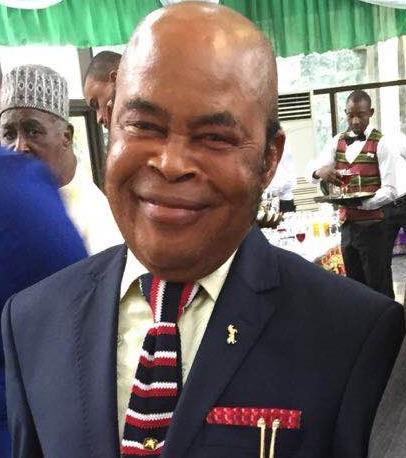
The Code of Conduct Tribunal, CCT, will on March 21 deliver ruling on the competence of the criminal charge brought against the Supreme Court Justice, Sylvester Ngwuta, by the federal government on charges of false assets declaration.
The Code of Conduct Tribunal, CCT, will on March 21 deliver ruling on the competence of the criminal charge brought against the Supreme Court Justice, Sylvester Ngwuta, by the federal government on charges of false assets declaration.
The tribunal fixed the date after taking arguments from counsel to the apex court justice and that of the Federal government on the propriety or otherwise of the charge.
Mr. Ngwuta through his counsel, Kanu Agabi, had in a motion on notice filed on January 9 prayed the tribunal to invoke section 158(1) of the 1999 constitution to dismiss the 10-count criminal charges against him.
His ground was that as at the time the alleged offense was committed, he was a serving justice of the Supreme Court, hence a serving judicial officer within the purview of section 318 of the constitution.
The apex court justice insisted that by the combined effects of section 158 of the constitution and paragraph 21 of the third schedule to the constitution, any complaint or allegation of misconduct against him must first be referred to the National Judicial Council (NJC) empowered by law to exercise disciplinary control over him.
He maintained that the allegations which brought about the criminal charge against him were never referred to the NJC as required by the constitution, hence, the charge not competent in law.
Mr. Ngwuta cited the decision of the Court of Appeal in Justice Nganjiwa versus Federal Republic of Nigeria where the appellate court held that no criminal investigation or prosecution can be initiated or instituted in any court of law or tribunal against a serving judicial officer for judicial misconduct without first presenting the allegation to the NJC and a determination made.
Maintaining that the allegations against him were never made available to the NJC as required by law, the defendant said that the charge was incompetent and that the tribunal lack jurisdiction to entertain it.
However, counsel to the federal government and a Senior Advocate of Nigeria, Abeni Mohammed, vehemently opposed the application and urged the tribunal to dismiss it in its entirety.
The senior counsel submitted that the claim of the judicial officer was misconceived by the defendant adding that Mr. Ngwuta was put on trial at the CCT as a public office holder and not as a judicial officer.
Besides, Mr. Mohammed said that the finality of the Appeal Court decision relied upon by the defendant has not been tested at the Supreme Court.
“The defendant is here as a public officer to face charges against him and not as a judicial officer. He is here as Sylvester Nwali Ngwuta and not as Hon. Justice Sylvester Nwali Ngwuta. It is not derogatory, that is what the law says,” the counsel argued.
Mr. Mohammed insisted that the decision of the appeal court on the judicial officers in relation to section 158 of the 1999 constitution was not an application to the trial of the defendant because of peculiar circumstances and asked the tribunal to assume jurisdiction.
The Chairman of the tribunal, Danladi Umar, later fixed March 21 for ruling in the motion.
The federal government had last year slammed a 10-count charge against the Supreme Court justice on false assets declaration.
The charge has, however, suffered series of adjournments at the instance of the federal government due to non-availability of witnesses to establish the case.
